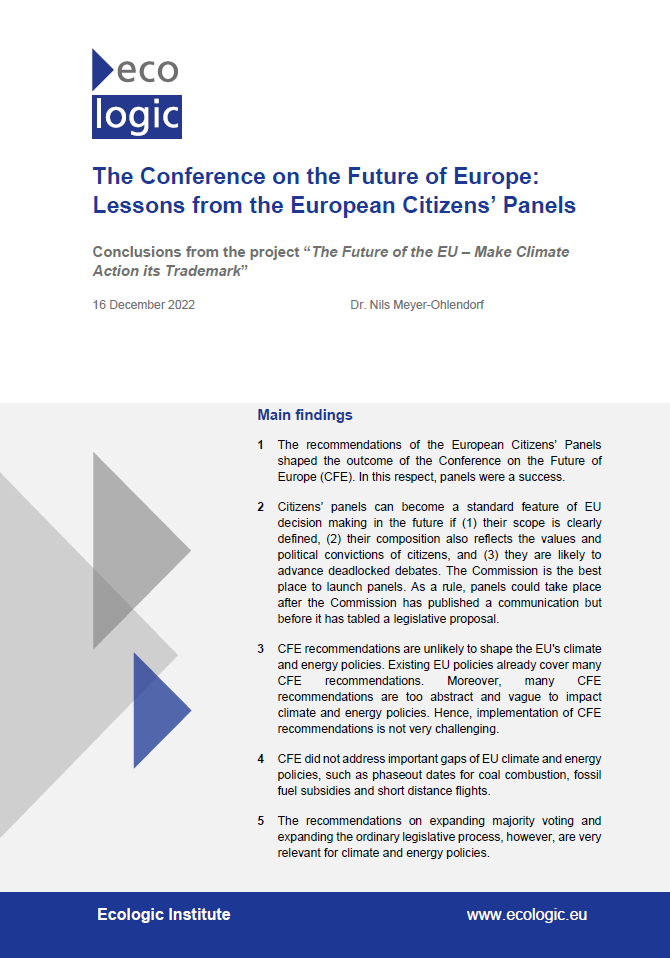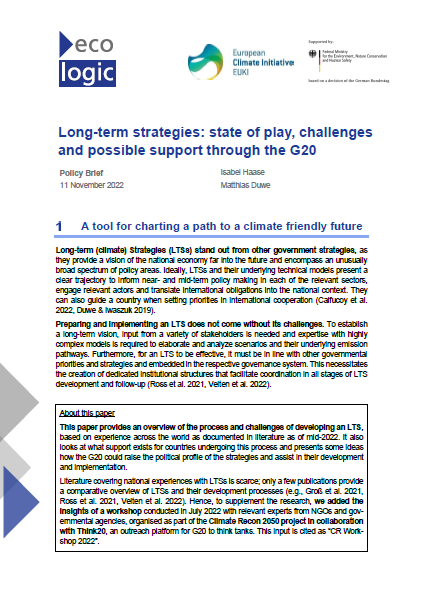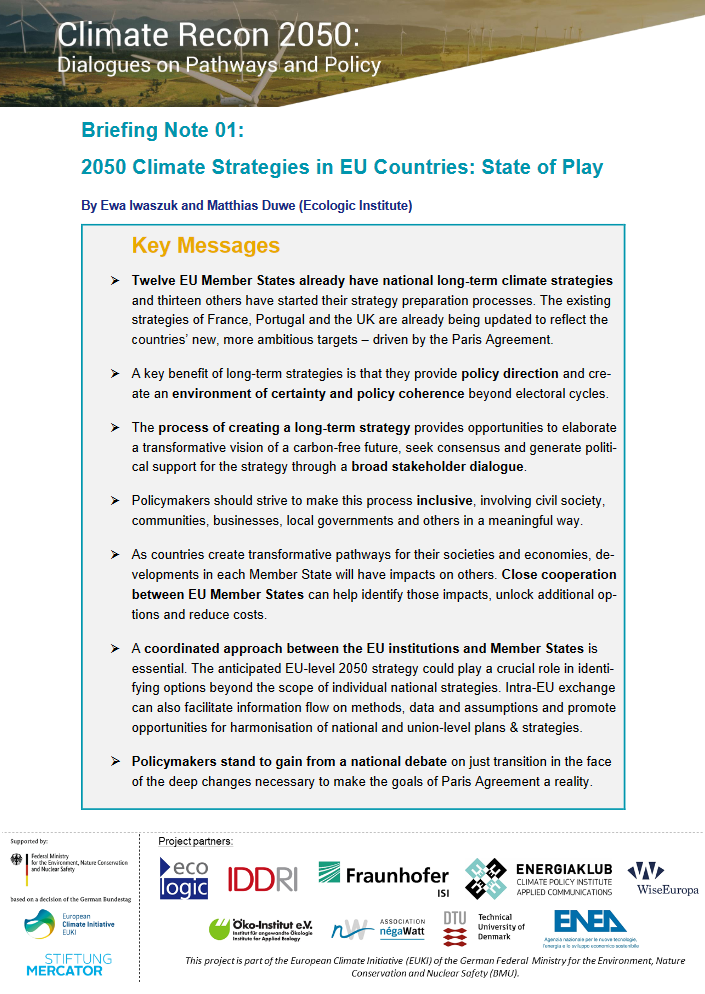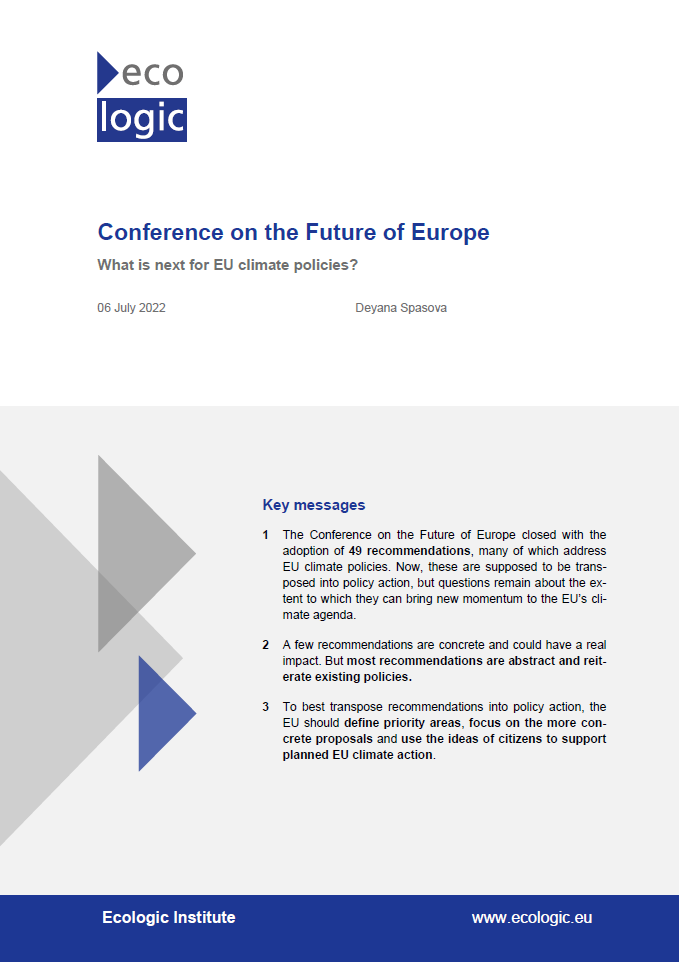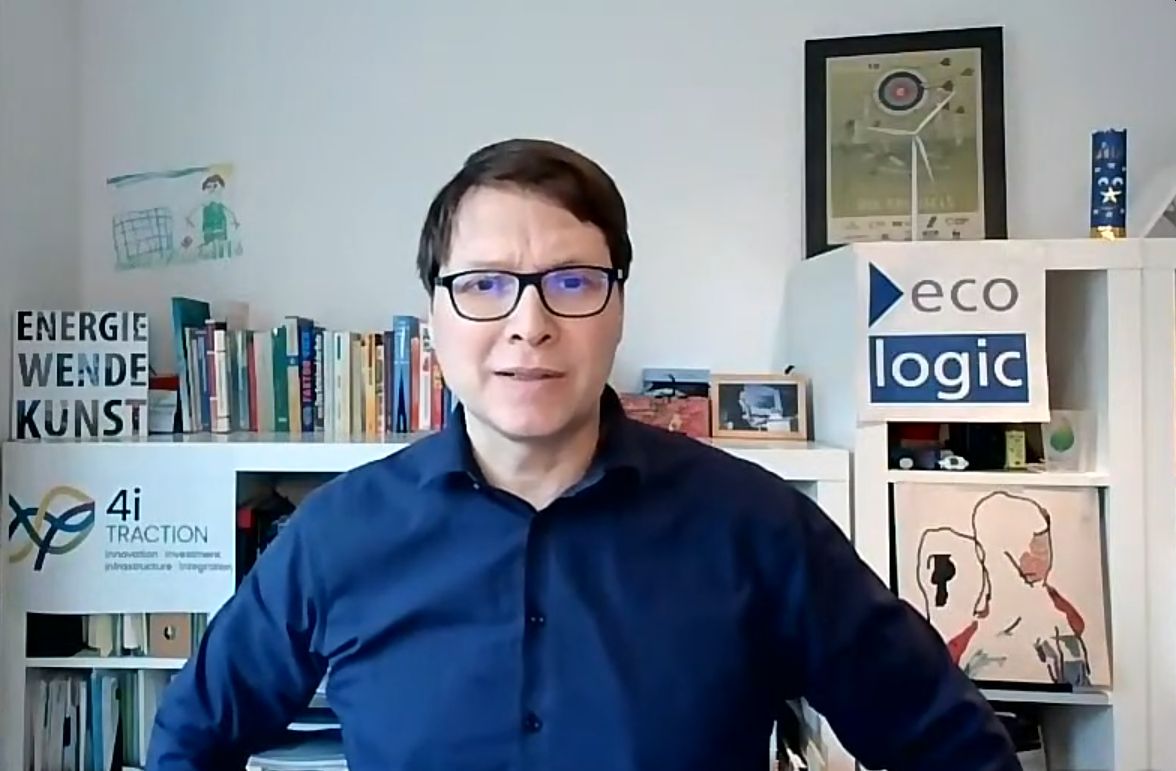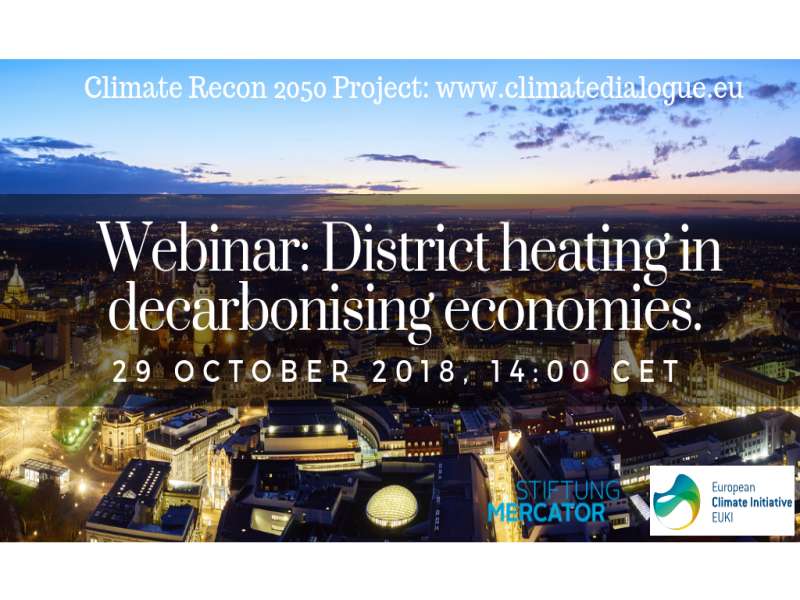Modern, low-carbon district heating networks are important vectors for the decarbonisation of the European residential heating sector. However, they only supply 12% of residential heating demand in the EU, and face numerous challenges, including inefficiencies and fossil fuel dependency in legacy urban heating systems in Central and Eastern Europe. In the light of the recent Fit for 55 package and the RePowerEU plan, efficient district heating systems are increasingly in focus as solutions for decarbonisation.
This webinar presents and discusses findings of a report by Energy Policy Group. The analysis focuses on the role of district heating in Member States' Long-term Climate Strategies (LTSs). The report describes the current situation, highlights key challenges and shortcomings of published LTSs, and proposes a way forward for integrating efficient, low-carbon and reliable district heating systems into climate neutrality strategies.
The webinar is part of the Climate Recon 2050 project. The project aims to create a space for experience sharing among representatives from different EU countries and provide opportunities for exchange, support and capacity building for EU Member States engaged in the complex process of planning how to reach deep greenhouse gas emissions reductions by 2050.



